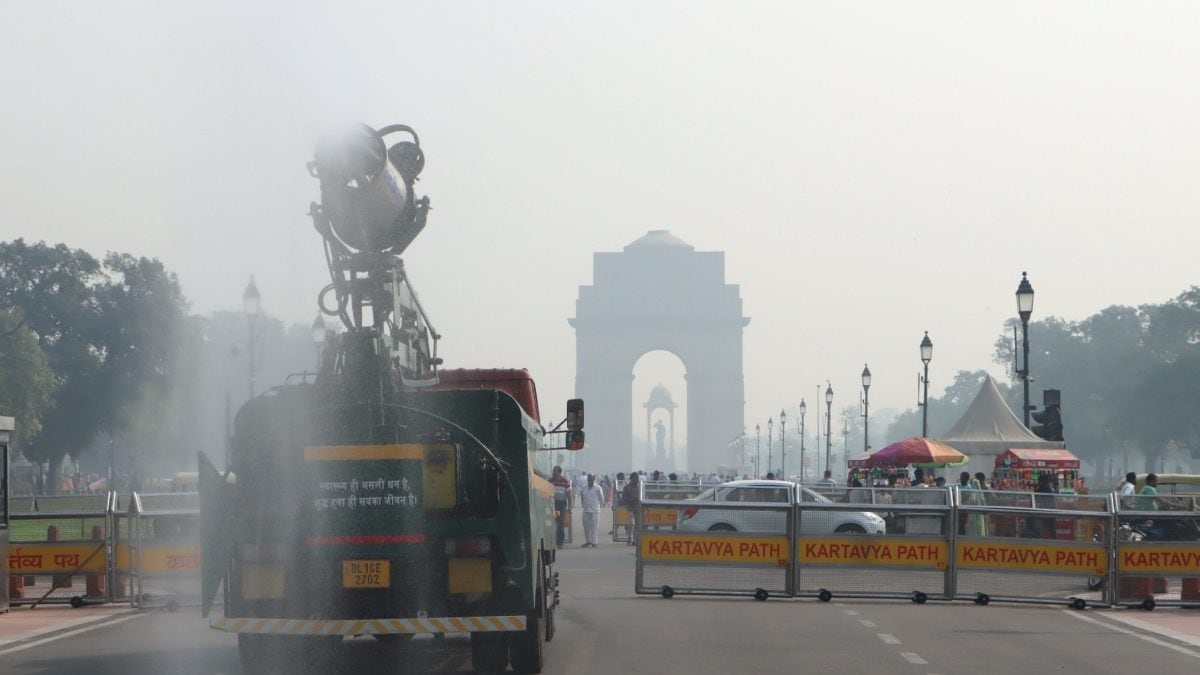Pollution in Delhi NCR Worsens Amidst Post-Diwali Surge: Experts Weigh In on Strategies for Safeguarding Health

New Delhi (PTI): With winter approaching, the national capital and surrounding cities are bracing themselves for an escalation of air pollution, particularly following festive events like Diwali. Rising levels of pollutants in the air pose significant threats to respiratory, cardiovascular, and psychological well-being.
Health experts warned that individuals should adopt protective measures to reduce exposure and mitigate health impacts, emphasizing strategies to safeguard lung function, immunity, and mental clarity as urban areas reel under hazardous pollution levels.
"Limiting outdoor activities during early mornings and late evenings is crucial," said Dr Arunesh Kumar, a senior consultant in respiratory medicine. "Using an N95 mask while stepping outside can help filter out harmful particles, reducing the risk of respiratory issues."
In addition to wearing masks and using HEPA air purifiers indoors, experts advise individuals to maintain a healthy indoor environment by keeping plants like aloe vera and snake plant that absorb toxins and produce oxygen.
Maintaining a balanced diet rich in antioxidants is also key, according to Dr Kumar. Antioxidants found in citrus fruits, berries, and nuts can boost immunity and protect the body from oxidative stress caused by pollutants. Regular indoor exercise supports respiratory and cardiovascular health, while minimizing indoor pollutants such as scented candles and chemical-based cleaners further aid a healthier home environment.
Moreover, monitoring air quality levels through reliable apps or websites enables better planning and protective measures on days when pollution is particularly high. The impact of air pollution on mental well-being should not be overlooked, warned Dr Jyoti Kapoor, founder-director and senior psychiatrist.
Exposure to pollutants like fine particulate matter (PM2.5) and toxic gases can lead to increased stress, anxiety, and depression. Prolonged exposure can disrupt lung and brain function, influencing emotional regulation. The result is a cyclical effect that exacerbates psychological concerns.
To combat the effects of pollution on both physical and mental health, Dr Kapoor suggests a combined approach. Better air quality not only eases respiratory symptoms but also contributes to mental clarity and overall well-being. Improved environmental conditions reduce the burden on the body and mind, fostering a healthier, more resilient community.
As urbanization and environmental challenges continue to escalate, it is essential for individuals to take proactive steps in protecting their health from pollution-related harm. By prioritizing physical and mental well-being, individuals can build resilience against the impact of air pollution and contribute to a healthier society as a whole.
Related Stories:
- Delhi NCR Air Quality Plummets Amidst Post-Diwali Pollution Surge
- How Yoga Helps Reduce Anxiety and Stress During Polluted Days
- New Study Suggests Link Between Air Pollution and Cognitive Decline
